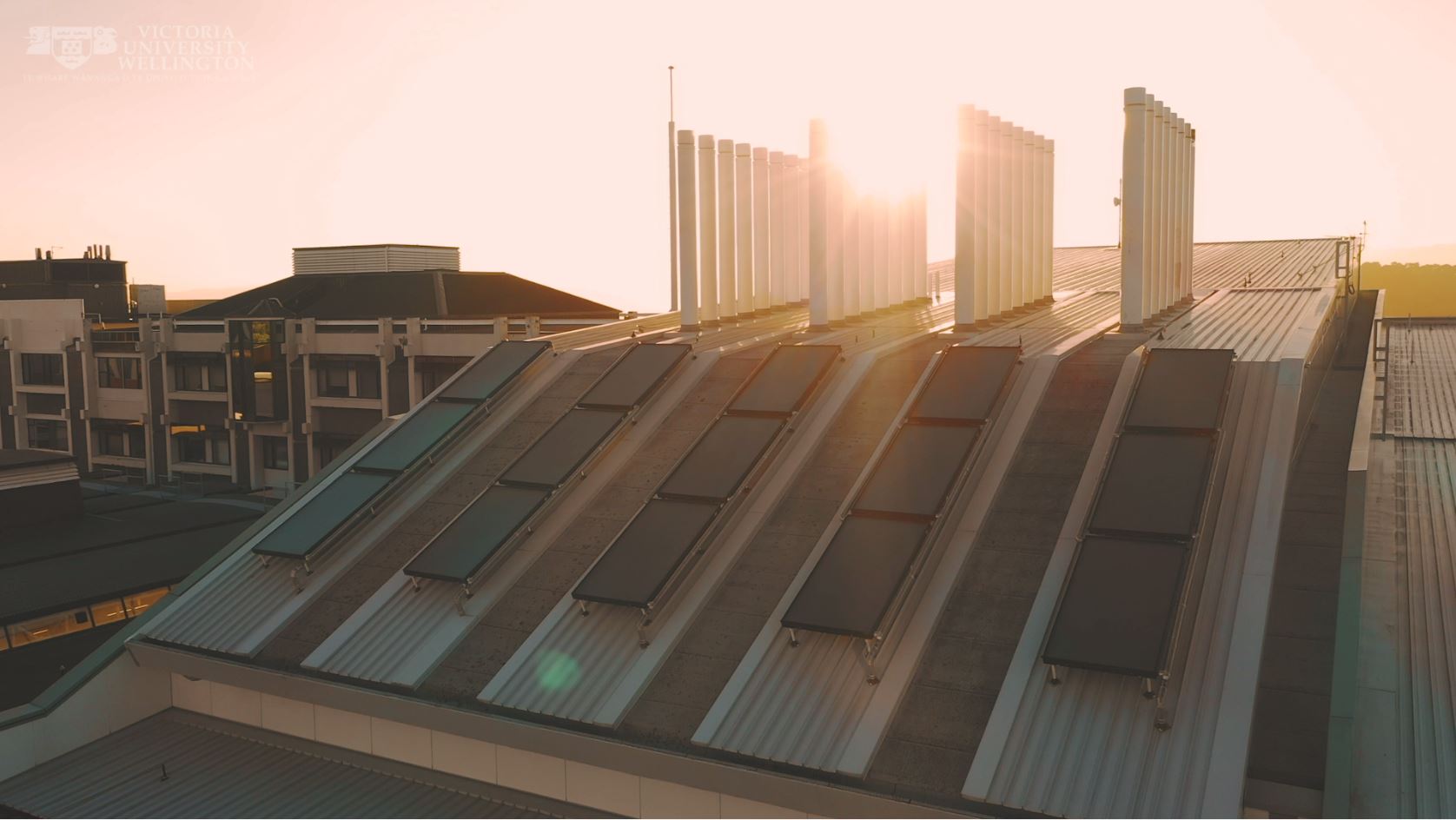
Master of Renewable Energy – MRE
Learn how to design, develop, and promote clean energy systems—the key to a resilient and sustainable future.
Be part of the transition
Every day we see news stories of ‘once-in-a-century’ floods, droughts, hurricanes, and fires. Climate change is upon us, and it can feel overwhelming.
But we can tackle this generational challenge and speed up the transition to clean, renewable energy. To do this, the world needs people with the technical skills to implement and operate renewable energy systems and the analytical know-how to shape public energy policy.
That’s where the Master of Renewable Energy comes in.
Get the Postgraduate Engineering Handbook
Fill in the form to find out more about your study options in our Wellington Faculty of Engineering Postgraduate Handbook.
Download the handbookTwo learning pathways
On our Master of Renewable Energy (MRE) programme, you’ll gain a deep understanding of sustainable energy technologies such as solar, hydroelectric, geothermal, and wind power.
Within the MRE, you’ll choose from two learning pathways—one focused on engineering, the other on analysis.
Renewable Energy Systems Engineering
This learning pathway focuses on the technical aspects of renewable energy systems. You’ll learn how solar panels, wind turbines, and other renewable energy systems work. You’ll also learn how power is stored on the national grid, and how power electronics enable energy to be used efficiently.Renewable Energy Systems Analysis
On the analytical pathway, you’ll study the economics of energy systems and learn about energy markets and regulation. You’ll also develop techniques for modelling and analysing the sustainability of energy systems. This pathway will prepare you for an analyst or policy role in an organisation that deals with energy systems.
Hands-on opportunities
At Te Herenga Waka—Victoria University of Wellington, you’ll have a wealth of support and resources to draw on. You’ll be part of a collaborative community of students and staff working on projects with real-world applications.
In our world-class laboratories, you’ll get hands-on experience using advanced equipment and the latest industry-relevant software. Outside the lab, you’ll attend lectures given by experts in the industry—and have the chance to engage with them directly.
Why Wellington
Here in Wellington, we have some of New Zealand’s largest and most innovative companies at our doorstep. Being in the nation’s political centre, we can be part of the conversation around government energy policy.
Being in Wellington, our university is well positioned to engage with all the relevant stakeholders in the energy sector—including industry and government.
Professor Alan Brent
Professor of Sustainable Energy Systems
Power your career
The Master of Renewable Energy will open the door to a range of roles in the private and public sectors.
Following the engineering pathway could lead to work designing and installing small-scale sustainable energy systems. Or it could lead to a role in a larger company involved in generating, transmitting, or distributing power.
Following the analytical pathway could land you an advisory role where you help to shape energy policy. That could be in central government, at a regional agency, or at a not-for-profit organisation.
Next
Requirements


